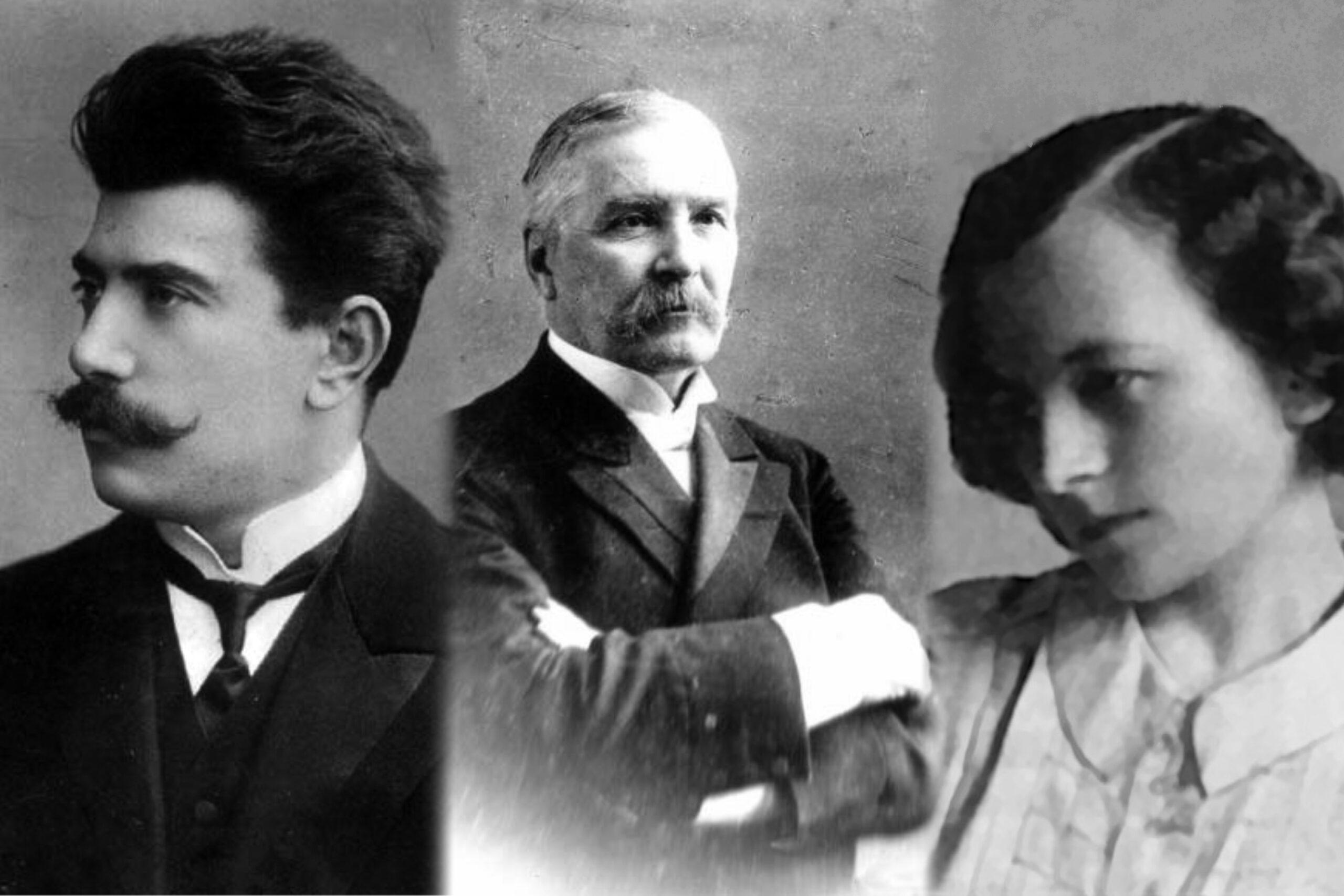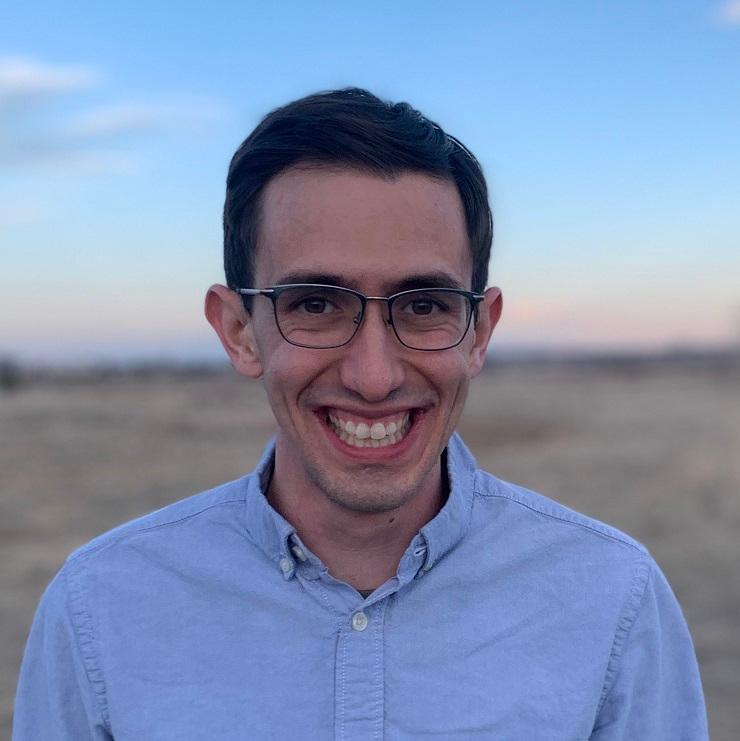
War takes its toll on a nation's cultural heritage and identity, as we're reminded by the tragic events in Ukraine that have sent curators scrambling to save precious art.
It’s in moments like this that music — a living art — can be a critical beacon for people as a unifying source of strength. So together we celebrate Ukrainian heritage by discovering Ukraine’s classical composers. Listen to their works as you read about the lives of several Ukrainian composers — many of whom you may not have heard of, and some of whom are still alive.
(Be sure to continue to the bottom to save a Spotify playlist featuring each composer.)
Valentin Silvestrov (1937-)
Educated in piano and composition at schools in Kyiv, Silvestrov holds a strong reputation in the contemporary classical world: leading composers Alfred Schnittke and Arvo Pärt have called him among the greatest composers of their generation. After establishing himself as one of the leaders of the “Kyiv avant-garde,” he notably broke from the experimental style of his contemporaries to instead pioneer his own tonal, post-modernist style called “metamusic.”
Silvestrov’s love for his country is felt in his work, including his “Prayer for Ukraine” and “Maidan 2014” song cycle, both written while he was speaking out against the earlier Russo-Ukrainian unrest around 2014. This choral piece, “Diptych,” is based on a poem from nationally beloved Ukrainian poet Taras Shevchenko called “Zapovit” (“Testament”) that professes the author’s love for his homeland.
Silvestrov recently fled Ukraine and is living in Berlin.
Yevhen Stankovych (1942-)
Another major figure in contemporary Ukrainian music, Stankovych has received many accolades, including the “Hero of Ukraine” designation and the Shevchenko State Prize, the country’s highest honor in the arts. His diverse catalog includes symphonies, operas, ballets, film music and chamber pieces like his “Ukrainian Poem”:
Reinhold Gliere (1875-1956)
Likely the most well-known composer on our list, you may recognize Glière’s name from the famous “Russian’s Sailors’ Dance” theme from his ballet “The Red Poppy.” As his native Ukraine was variously part of the Russian Empire and the USSR while he was alive, he’s also considered Russian like many others of his time. He was named People’s Artist of the USSR owing to his artistic achievements. Joseph Stalin looked kindly on his Russian Romantic style, and he managed to escape the censorship that many Soviet artists faced. Nonetheless, his influence on Ukrainian music was significant. In addition to teaching superstars like Prokofiev and Khachaturian in Russia, he became one of the first directors of the Kyiv Conservatory, where he taught Ukrainian composers who went on to be highly regarded like Boris Lyatoshinsky. (Also educated at this school: Ukrainian superstar pianist Vladmir Horowitz.) The R. Glier Kyiv Institute of Music in Kyiv now bears his name.
Mykola Lysenko (1842-1912)
Did you catch that beautiful “Prayer for Ukraine” choral piece that opened "Saturday Night Live" a few weeks ago? It’s the work of Lysenko, a composer considered “the father of modern Ukrainian classical music,” who started a “national movement” in Ukrainian music tradition and gave concert tours across the country. He studied under Rimsky-Korsakov before founding the (since renamed) Lysenko School of Drama and Music in Kyiv in 1904; the Lviv Conservatory also bears his name. His large output includes piano music, operas, many folk songs and a full 133 art songs.
Stefania Turkewich (1898-1977)
Called Ukraine’s “first woman composer,” Turkewich studied and later taught at the Lysenko Lviv National Music Academy. 20th century avant-garde icon Arnold Schoenberg also taught her in Berlin for a time, where she fled from the Soviets during World War II. Many of her works have yet to be performed. You can hear a distinctive Ukrainian simplicity with hints of Slavic folk song melodies in her modern-sounding art songs:
Kyrylo Stetsenko (1882-1922)
A composer affected by the turbulence of his own times in Ukraine, Stetsenko worked alternately as a musician and an Orthodox priest as various political movements and pressures made him leave Kyiv several times in the early 20th century. In between, he composed a bevy of choral pieces, including several art songs that invoke the spirit of his country. When the Ukrainian National Republic was declared in 1917, he was given a musical position in the government’s Ministry of Education and led a new national Ukrainian choir that he took on a tour of the country to promote national unity.
Mykola Diletsky (1600s)
The earliest composer on the list, not much is known about Kyiv-born Diletsky’s life, but his impact is profound due to his 1677 textbook “A Musical Grammar.” It’s regarded as the first textbook of its kind in Russia and the first instance of Western music theory concepts in the region. It even contains the first known depiction of the circle of fifths, a core foundation of western music theory! Needless to say, Diletsky’s contributions laid the foundation to educate a legion of Russian and Eastern European musicians. Several of his sacred choral works also survive and are sung here by the Kyiv Chamber Choir:
Explore these Ukrainian composers with our Spotify playlist:
Hear CPR Classical by clicking “Listen Live” at the top on this website, or download the Colorado Public Radio app. Listen on your radio to CPR Classical at 88.1 FM in Denver, or on radio signals around Colorado. You can also tell your smart speaker to “Play CPR Classical."








